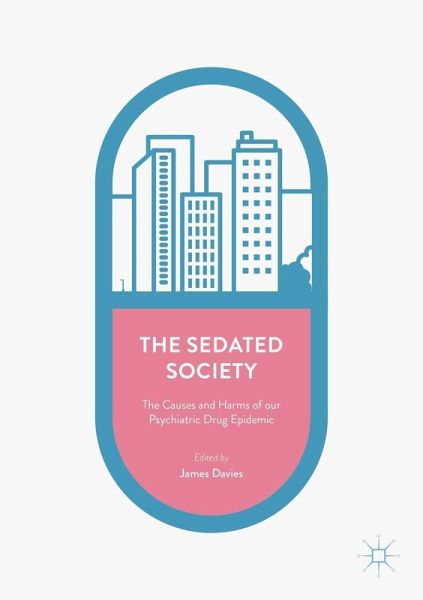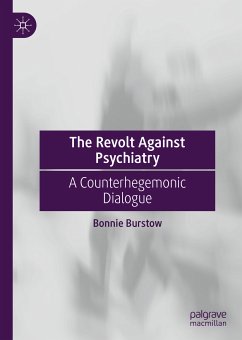
The Sedated Society (eBook, PDF)
The Causes and Harms of our Psychiatric Drug Epidemic
Redaktion: Davies, James
Versandkostenfrei!
Sofort per Download lieferbar
56,95 €
inkl. MwSt.
Weitere Ausgaben:

PAYBACK Punkte
28 °P sammeln!
This edited volume provides an answer to a rising public health concern: what drives the over prescription of psychiatric medication epidemic? Over 15% of the UK public takes a psychiatric medication on any given day, and the numbers are only set to increase. Placing this figure alongside the emerging clinical and scientific data revealing their poor outcomes and the harms these medications often cause, their commercial success cannot be explained by their therapeutic efficacy.Chapters from an interdisciplinary team of global experts in critical psychopharmacology rigorously examine how pharma...
This edited volume provides an answer to a rising public health concern: what drives the over prescription of psychiatric medication epidemic? Over 15% of the UK public takes a psychiatric medication on any given day, and the numbers are only set to increase. Placing this figure alongside the emerging clinical and scientific data revealing their poor outcomes and the harms these medications often cause, their commercial success cannot be explained by their therapeutic efficacy.
Chapters from an interdisciplinary team of global experts in critical psychopharmacology rigorously examine how pharmaceutical sponsorship and marketing, diagnostic inflation, the manipulation and burying of negative clinical trials, lax medication regulation, and neoliberal public health policies have all been implicated in ever-rising psycho-pharmaceutical consumption. This volume will ignite a long-overdue public debate. It will be of interest to professionals in the field of mental health and researchers ranging from sociology of health, to medical anthropology and the political economy of health.
Dieser Download kann aus rechtlichen Gründen nur mit Rechnungsadresse in A, B, BG, CY, CZ, D, DK, EW, E, FIN, F, GR, HR, H, IRL, I, LT, L, LR, M, NL, PL, P, R, S, SLO, SK ausgeliefert werden.
Alle Preise in Euro und inkl. der gesetzl. MwSt. | Innerhalb Deutschlands liefern wir preisgebundene Bücher versandkostenfrei. Weitere Informationen: bitte hier klicken
Support
Bitte wähle dein Anliegen aus:
Rechnungen
Bestellstatus
Retourenschein
Storno












